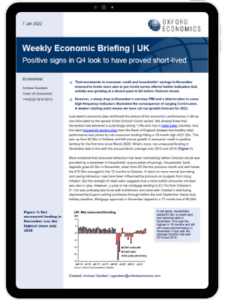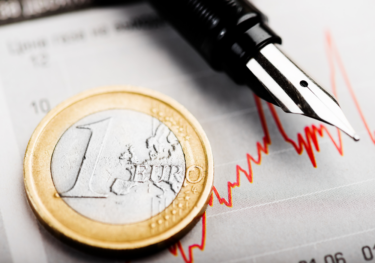Positive signs for UK economy in Q4 look to have proved short-lived

That movements in consumer credit and households’ savings in November
returned to levels more akin to pre-Covid norms offered further indication that activity was growing at a decent pace in Q4 before Omicron struck.
However, a sharp drop in December’s services PMI and a deterioration in some high-frequency indicators illustrated the consequence of surging Covid cases.
What you will learn:
- More evidence that consumer behaviour had been normalising before Omicron struck was provided by a slowdown in households’ accumulation of savings.
- Unfortunately, evidence of stronger activity in November looks to have been usurped by the consequences of the rapid spread of the Omicron Covid variant, a rise in the number of people isolating and increased consumer hesitancy.
- Moreover, the latest high-frequency indicators added to the evidence that the services sector has been hard hit by Omicron. CHAPS data on credit and debit card spending showed social spending in December averaged just under 90% of the February 2020 level.
Tags:
Related research

Post
Nowcast shows wage growth slowing sharply
Our sentiment data, developed with Penta, suggests that UK private sector wage growth slowed sharply in March and early-April. If official data mirrors our sentiment indicator, it should keep the Monetary Policy Committee on track to cut interest rates in the summer.
Find Out More
Post
The euro and depreciation – shake, shake it off
Our new forecast assumes a slower euro appreciation against the dollar over the coming years than we previously anticipated. Relative productivity, terms of trade, and the current account will likely be less supportive of the euro than we thought. In addition, a stronger stock market than initially envisaged will attract more financial flows into the US than we had expected.
Find Out More